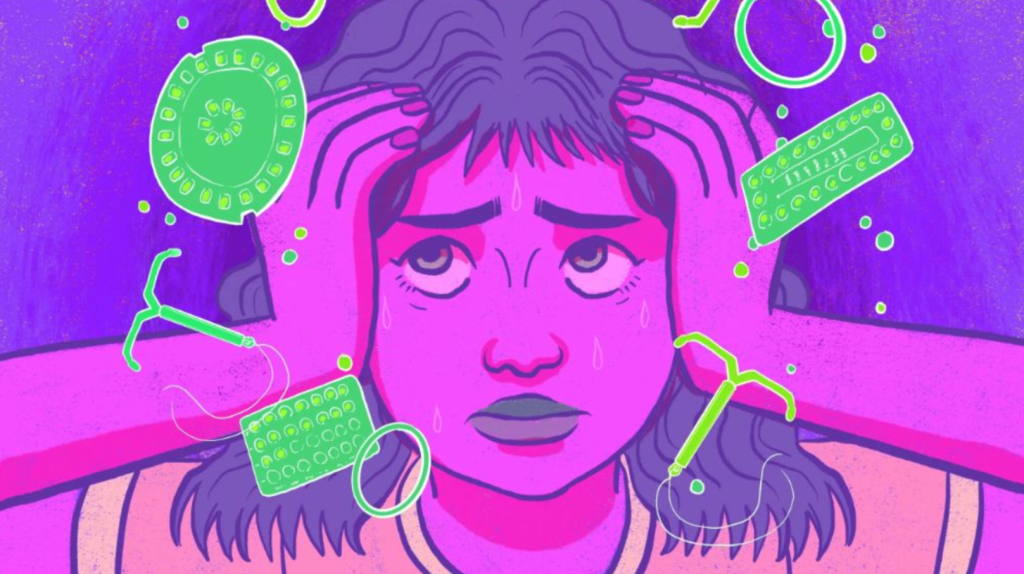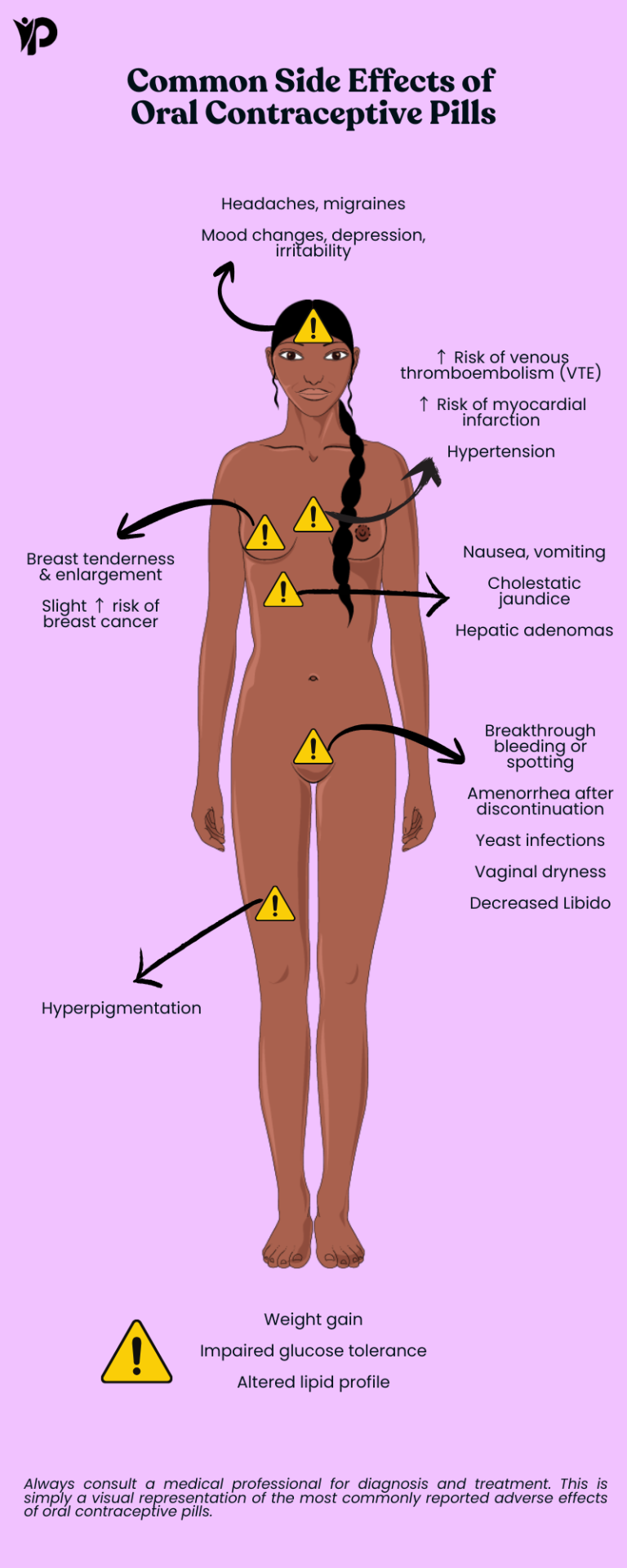How Contraceptive Pills Can Transform You
- The impact of oral contraceptive pills is not limited to regulating or stopping periods.
- Hormonal changes can affect parts other than the reproductive system.
- Some side effects are subtle and may go unnoticed.
Introduction
To prevent pregnancy, it is medically advised to take oral contraceptive pills. These pills suppress ovulation and alter the body’s hormone levels. As a consequence, they can change the timing, flow and even the nature of bleeding. This often masks the natural cycle of the body and over time, this suppression can affect the body’s ability to restore natural ovulation. Thus, their influence on the menstrual cycle goes beyond preventing pregnancy.
The effects of the pills vary from person to person. Many experience lighter periods but others could experience changes in their moods, skin or long-term health cycle. These are effects one does not immediately link to the pill. Therefore, understanding the hidden effects of the pill are important for making informed choices about reproductive health.

How do the pills alter menstrual cycle?
Contraceptive pills replace a naturally fluctuating hormone environment with consistent synthetic levels. This leads to withdrawal bleeds. This means that the monthly bleeding mimics menstruation but it is not a true period. These artificial cycles suppress ovulatory signals from the body often resulting in light bleeding or highly regular cycles.
While taking the pills, many women experience lighter periods because these pills reduce the thickness of the endometrial lining. This also makes implantation more challenging when trying to conceive. All of this happens while taking the pills but what about after stopping the pills? After stopping the pill some women experience post-pill amenorrhea which means for some time they experience an absence of menstruation. There is a delay in the return of their natural cycle after stopping the pill.
Other Side Effects
These pills affect more than just the menstrual cycle. Research shows a complex picture. According to the National Cancer Institute, hormonal contraceptives can slightly raise the risk of breast and cervical cancers, while also lowering the risk of endometrial, ovarian and colorectal cancers.The American Cancer Society also notes a small increase in breast cancer risk among current or recent users. This risk returns to baseline within about 10 years after stopping the pill. Beyond these, the pill can bring a range of other side effects. These are:
- Yeast infections: Hormonal Changes can cause changes in vaginal pH, leading to candida growth.
- Vaginal Dryness: Changes in hormones can also cause changes in the lubrication of vagina.
- Decreased Libido: Some people experience less desire to have sex while taking the pill. Switching the contraception method can help reduce this.
- Breast tenderness: According to a 2023 clinical trial published in the journal Contraception, about 4 percent people experienced breast tenderness while taking progesterone only pills. Breast tenderness or soreness, can occur anywhere on the breast and nipples.
- Mood changes: Some experience depression or anxiety, especially in the first two years of use or if started in adolescence.
- Skin changes: Can improve acne for some and worsen it for others.

Conclusion
When used under medical guidance, hormonal birth control pills are a safe and effective option. But anytime you use hormonal pills, the pills alter what is already occurring in your system. Hence there is always a chance that you will encounter side effects. Therefore, the decision to continue the pills long term should be personal and well informed. By exploring all available options and having open and honest conversations with your healthcare provider, you can make choices that align with your body’s needs, protect your well-being and support your life goals.
https://my.clevelandclinic.org/health/articles/11427-birth-control-options
https://www.everydayhealth.com/news/6-strange-side-effects-birth-control-pill/
https://wellnesswithsivi.com/how-oral-contraceptive-pills-affect-menstruation-fertility-the-hidden-downsides/
https://www.medicalnewstoday.com/articles/322762
https://www.cancer.org/cancer/latest-news/birth-control-cancer-which-methods-raise-lower-risk.html
https://my.clevelandclinic.org/health/symptoms/withdrawal-bleeding
Author


1 thought on “How Contraceptive Pills Can Transform You”
Insightful!